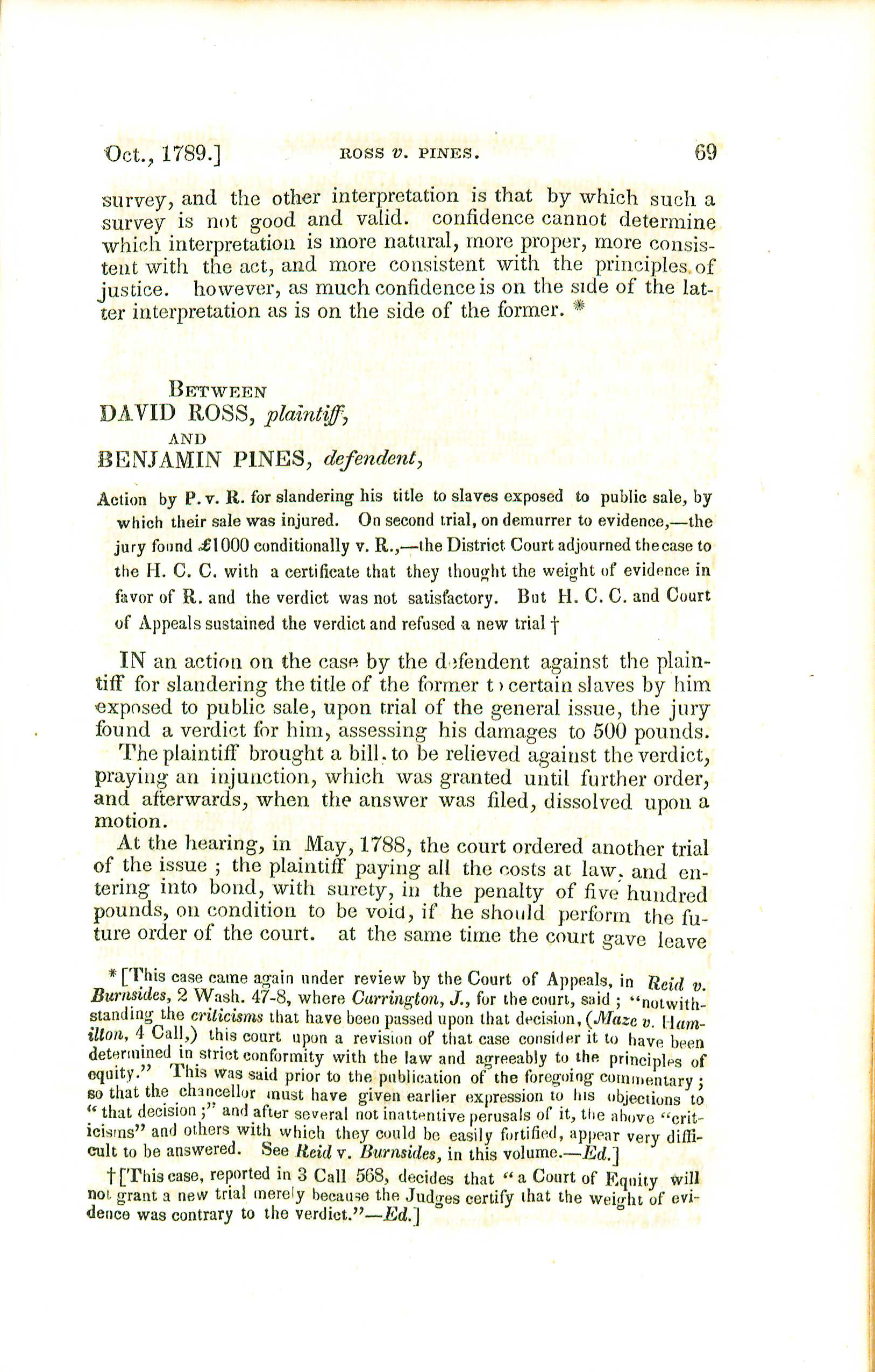Difference between revisions of "Ross v. Pines"
m |
m (→References) |
||
| Line 23: | Line 23: | ||
<references/> | <references/> | ||
| − | [[Category:Cases]] | + | [[Category: Cases]] |
| + | [[Category: Slavery]] | ||
Revision as of 09:32, 25 February 2018

Ross v. Pines, Wythe 69 (1789), was a case in which a person was accused of calling another's title to slaves into question, thereby reducing the slaves' sale price.[1]
Background
Ross wrote a letter to John Davis stating that there was a dispute over whether Pines had clear title to some slaves Pines was about to put up for auction. Both Ross and Pines demurred that this letter was the source of rumors that led to Pines' slaves being sold in private for much less money than Pines would have received for them at a public auction.
Originally, a jury found for Pines, awarding him £500. Ross brought a bill for relief from the verdict, and in a second trial, The King and Queen District Court asked the jury how much they would award Pines if they were to find for him, and the jury awarded Pines £1000. The District Court, however, disagreed and certified the question to the High Court of Chancery, stating that it did not find that the weight of the evidence supported Pines.
The Court's Decision
The High Court of Chancery held that Ross's letter was the only possible source of the rumors that reduced the value of Pines's slaves. Citing the Digest of Justinian, Wythe stated that even though Ross did not intend to reduce the slaves' value, he is still liable to Pines because Ross did not take precautions he could have to prevent the loss from happening.[2] The High Court of Chancery restored the original award of damages to Pines for £500. The Supreme Court of Appeals of Virginia affirmed the High Court of Chancery's decision.[3]
Works Cited or Referenced by Wythe
Justinian's Digest
Quotation in Wythe's opinion:
[W]ith the rule of the roman law, culpam autem esse, quod, cum a diligente provideri poterit, non esset provisum. Dig. lib. IX. tit. II, l. XXXI, the common law is believed to concur. Translation: [m]oreover he is liable because provisions were not made, when it [the risk] could have been foreseen by a careful person.[4]
For this quotation, Wythe most likely used his copy of the Corpus Juris Civilis which includes the Digest of Justinian.
References
- ↑ George Wythe, Decisions of Cases in Virginia by the High Court of Chancery with Remarks upon Decrees by the Court of Appeals, Reversing Some of Those Decisions, 2nd ed., ed. B.B. Minor (Richmond: J.W. Randolph, 1852), 69.
- ↑ Wythe 72, citing Dig. 9.2.31.
- ↑ Ross v. Pines, 7 Va. (3 Call) 568 (1790).
- ↑ Wythe 72.